- How Does One Of Odesk’s Top Affiliates Run His Business?
- Can Outsourcing Change People’s Lives In Developing Countries?
- What Is The Best Way To Build Remote Developer Teams?
Full Interview Audio
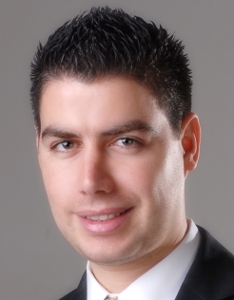
Personal Info
Sports Teams:Destroyers; Soccer Team from Bolivia
Favourite Books:
- Good to Great: Why Some Companies Make the Leap… and Others Don’t by Jim Collins
- Losing My Virginity: How I Survived, Had Fun, and Made a Fortune Doing Business My Way by Richard Branson
Most Influenced By:Grandmother
Website: http://galindoconsultinggroup.com
Interview Highlights
This is a condensed, lightly edited transcript of an audio interview. The full audio is available and highly recommended. The interviewee may post clarifications in the comments.
Adrian Bye: Today I’m here talking with Jorge Galindo from the Galindo Consulting Group. Jorge actually taught me Project Management while he was finishing up his PhD in Project Management at George Washington in the US. Jorge saw what I was doing, and he realized that he could apply project management to remote teams. Put together a remote team in Bolivia that is now working today. He is one of the top outsourcers on oDesk in terms of volume. Maybe Jorge you may want to come on and tell us a little bit about that story? 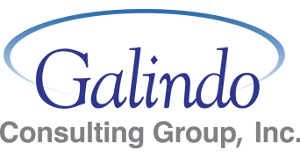
Jorge Galindo: We got together back in 2004. I was doing my PhD, I was looking for dissertation topics, starting to plan my future beyond the PhD. I wanted to do consulting. My dissertation took a few years. In 2006, I quit my job, moved to Bolivia and started working with several online consulting gurus. You had given me the idea about oDesk. I finally got to do it in 2007 and I moved to Bolivia to start that. I thought if I could get 10 people to work with me I’ll be lucky. I ended up with a lot of people, we had probably 1000 people work with us. We have about a hundred people a year that do work with us on average. It’s been pretty good.
Adrian Bye: It’s funny how big things can happen out of little conversations, isn’t it?
Jorge Galindo: Yes, it sort of grew into something big. It’s interesting what you were able to do living in the Dominican Republic. My wife wanted to move to Bolivia, so I had to find something that I could do from anywhere. I ended up doing the oDesk, and together with my business partners we’ve been able to change a lot of people’s lives. It just feels good to be able to say that and do that.
Adrian Bye: What kind of volume are you doing on oDesk?
Jorge Galindo: We’re doing about 50,000 a month that we pay in salaries. We have about 250,000 hours worked as a group. We have people working in the major cities in Bolivia, but we also have people working in the United States. Our clients are from all over the world. I’m proud of that. That’s something that I started in 2007 and I worked really hard at it for a few years. I moved on to work on something else and right now it’s just maintained by the project managers.
Adrian Bye: In terms of oDesk volume, what size are you on oDesk? We talked in the past and you said that you were the top on oDesk?
Jorge Galindo: We were number two or three. I don’t know really where we are on the ranking of companies. But we are definitely the largest in South America.
Adrian Bye: Out of Bolivia, which isn’t a very big country. 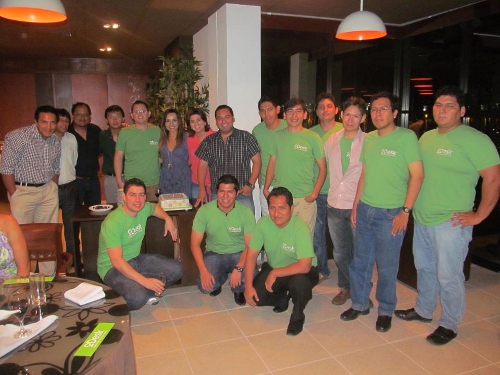
Jorge Galindo: Yes. It’s a third world country that doesn’t have the opportunities that other countries like Brazil, Chile and Argentina have. But we were able to grow something big.
Adrian Bye: How does the business model work from your perspective on oDesk? You’re what’s called an affiliate on oDesk?
Jorge Galindo: Yes, I’m an affiliate. Being an affiliate company, I can get people to associate with me and you can have managers that have access to the tools. The way we built it is we got managers that would come in and sort of be self-starters. They are the ones that have their teams and they talk directly with clients. We share stories and techniques, but basically we have sub-groups within the oDesk affiliate.
Adrian Bye: Do you work with other people who aren’t in Bolivia? Could I come on and say I want to be part of your team?
Jorge Galindo: Yes. We’ve associated with different people at different times. It just happens that my network is in Bolivia and the people that I’ve met were there. We do have plans to expanding to other countries. It’s just a matter of putting in the effort to find the people.
Adrian Bye: Effectively, what these people are coming to you for is your project management and your ability to work with clients, right?
Jorge Galindo: Right. It’s really hard to start something. I worked hard at starting the team. I would do consulting through oDesk in the beginning. Just figuring it out how to do your applications, how to talk to clients, follow up, and getting a recognition in the beginning is really tough. So if anybody tries to start their own affiliate business it’s tougher than associating with a proven company.
In the beginning we had a lot of discussions with CEO Gary Swart, trying to make things work as in the real world. Now it’s real, it’s not a concept anymore. It’s a company that lives virtually. We have a lot of hours, we’ve got a lot of feedback. We can select who associates with us and they will do better just because of the feedback they’re associated with.
Adrian Bye: And you said it changes people’s lives. Can you talk about how that changed people’s lives?
Jorge Galindo: In 2007, there weren’t a lot of opportunities for professional people. People with degrees are driving taxis or have their own little micro-businesses. Over 60% of the economy is informal. We got a lot of students fresh out of college. First we had an office, nobody had cars, everybody would use public transportation. After about a year, everybody had cars and some of them were the first time that their family ever had owned a car, so it was a noticeable change and difference that we made.
Adrian Bye: Your team in Bolivia, do they all have an office or do they all work from home?
Jorge Galindo: We tried different models. First we did just one office. It was small, so we moved to a bigger office every year since 2007. In 2010 I started to try to figure out how to have the business work without my involvement. I decided to close up the main office and give help to all the managers to do their own offices. A percentage of sales would go to them to open their offices. Since 2011 there are several offices, at least eight I can think of. A lot of people work from home, a lot of people work in the same office. They are like little small offices. 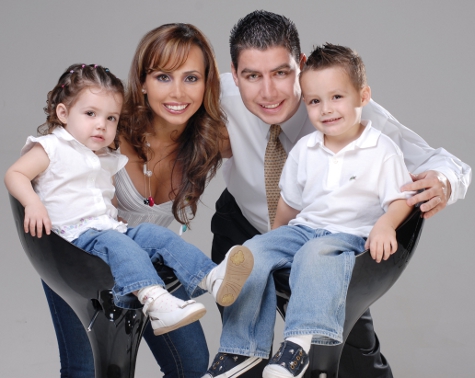
Adrian Bye: With two or three people in them?
Jorge Galindo: Typically four people. That’s worked out better for me in terms of management and responsibility. I think also for the quality of work. They just focus on what they’re doing, they have a small team and they can do a lot.
Adrian Bye: So you have about eight small offices scattered around Bolivia where people are working out of their offices. These are viable on-going small businesses under your banner on oDesk?
Jorge Galindo: Right.
Adrian Bye: How is the quality of the work they are doing over there? What kinds of clients are they working for?
Jorge Galindo: A variety of clients. A lot of websites and a lot of different things. I use my team for my other consulting work or for ideas that I have. I will set up a team and do some research and development. It’s like if we had two different businesses: the US business where we do the traditional consulting, and then the Bolivia deal where we’re able to set up a research and development for different areas. It works out really good because the company can gain knowledge at a fairly cheap price and at the same time you’re using your own teams.
Adrian Bye: Who is a typical client?
Jorge Galindo: Small businesses that want something specific done. We’ve had people who just have a website and they need team developers and they’ll hire them for support for several years. Actually, we just started seeing even Google is using oDesk. They recently approached us to do some remote work with them.
Adrian Bye: Google has?
Jorge Galindo: Yes. They are testing out our work. I think bigger companies are starting to get on board with oDesk.
Adrian Bye: You’re doing all the consulting work, you’re not spending all of your time on this. Can you talk a little bit about why you’re not spending all of your time on this? From an international human development perspective what you’re doing is amazing. You’re helping the Bolivian economy, you’re really helping people’s lives change in a very powerful way, and if we had a Jorge Galindo in every single country in the world, the world might be a better place. But you’ve also focused personally on a lot more US based consulting.
Jorge Galindo: It’s more of a personal thing. I started this, it worked out and it’s doing well. It could do a lot better, but it was time for me to start something else. I started to focus on the consulting in the US, specifically in the government. I was able to land two very interesting US government consulting projects. 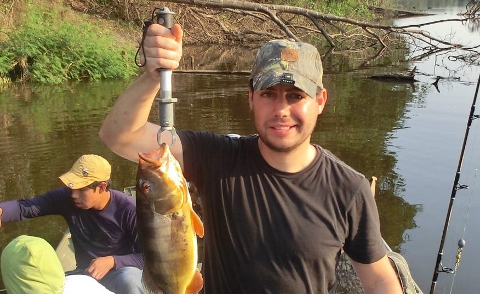
Adrian Bye: These are what you’re spending your full time on. Meanwhile you’ve got this side business down in Bolivia, right?
Jorge Galindo: Yes, unfortunately the size is not going down, it’s going up. Actually, when I stopped managing it, it started growing more. I think I have to figure it out, set it up, and then leave and figure out something else.
Adrian Bye: You could be going in and scale it into other countries. You have a concept where you have local teams. You could scale the whole operation across all of Latin America but you’ve chosen these US government contracts.
Jorge Galindo: Yes, but in the same sense, I’m scaling something else for myself. I’m setting up this government consulting which probably sounds boring to you but for me the work just happens to be pretty interesting. We’re doing iPad development for the government. That is something that I’ve been doing research for for a few years. I’m gaining the knowledge to be able to do that in several different agencies. We are in talks with the USAID to see how we could use oDesk on their contracts. That would marry both of them, but it takes years to do it.
Adrian Bye: Now I wanna talk to you about my latest revelation. I’m sure you’ve heard of Lean and the Lean Start-up Movement?
Jorge Galindo: No, I haven’t.
Adrian Bye: I went to a seminar on it. It’s like using Agile, but they use it for building businesses. Now you’ve a PhD in project management and Lean basically says, don’t really project-manage big things. Instead, just get a very small basic concept working, get some momentum with it and then keep building on that. Keep building around the momentum, use the feedback and evolve things organically from very small things into very big things. You taught me project management and it was hugely valuable and profoundly life-changing. That was my religion for a while. I now have kind of absorbed a new religion, which is Lean. I think the two can be combined. As long as you start with the right small thing it can organically grow huge.
You established a big office with your developers in Bolivia. You had eight internet connections and that to me is a top-down management approach to something. Instead what you found more effective was having local guys as sales managers with small teams that they then run. You came up with an organic little model that seems to have stuck. That’s exactly the kind of thinking that I acquired from Lean.
Now I’m a little curious if you’d disagree with me. The difference is maybe that it’s less top-down and more bottom-up.
Jorge Galindo: I think it’s really in line with what I’ve found to work for me. I feel at times instead of having one big company I have tons of small little companies. People take ownership of the projects and it seems to be in line with that type of thinking. Even in the government contracting I have two different projects so we have two different offices and two different managers. It’s like two Lean companies.
Adrian Bye: It’s a thought process that can be applied in dozens of different ways, but one of the basic things I see is instead of trying to top-down engineer things, you bottom-up engineer. One of the problems I see with project management is it does scale things well, but it seems like some of the things related to project management are not working, particularly in governments.
Jorge Galindo: It’s probably related to autonomous groups. If you’re referring to the government, it’s better if a small city decides where the budget is spent as opposed to coming from the capital city that has no idea what’s needed. That’s the same thing that I have been doing in my company; each little group has their own budget and they decide what to do with it.
Adrian Bye: It might be a distortion of what Lean is, but I see it as just do something, throw it against what is out there and see what gains traction instead of top-down trying to do things. You are a guy who has a PhD in project management from one of the top schools in the country, so that maybe runs a little bit counter to what you’ve learned.
Jorge Galindo: I view it as just two different tools, you can use both. If you have a Lean project you do Lean project management. I don’t see it as two different things.
You find the oDesk work very interesting and it is. It’s working and it can be scaled. Right now we’re saving up the percentage of the revenue, so five years from now we’ll have funding to scale it up and probably also my time. It’s long term for me, so it’s something that I’ll keep doing. To scale the oDesk you need to invest some money and I don’t want to take out loans, or fund it from the other groups. To do that I’m just saving up for five years and I’ll have money to scale it up the way as I think it should be. By then I have both capital from that group and some more knowledge.
Adrian Bye: Cool. Anything else you want to discuss that we haven’t talked about?
Jorge Galindo: No, I think that’s it. I’m just really proud of the people that I’ve been able to work with. They’re the ones that are keeping the company going as I get involved in specific projects. I usually just figure those little projects out but the rest of the people make sure that the company keeps going and keeps growing.
Adrian Bye: Awesome. Jorge, thanks very much for the interview.
Jorge Galindo: Thank you.









